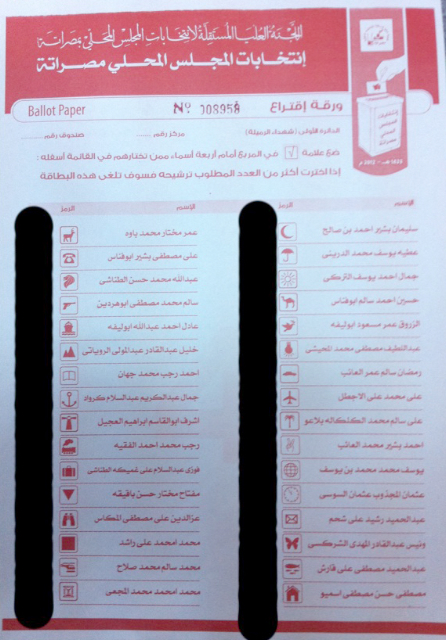by Gada Mahfud.
The internet and social media played a very important role in the Arab spring merely . . .[restrict]by providing a platform for communication plus the protection of anonymity for the masses struggling under dictators. This anonymity was the difference between life and death in countries ruled by dictators and their secret police.
Before there was the internet, unhappy people just had to put up or shut up, too frightened to speak up and too afraid of the consequences of sharing their feelings with others. The internet provided knowledge and knowledge is power so suddenly the isolation which dictators had imposed on their people was finished. From a dictator’s point of view, it was as if hell had broken loose.The internet was too big a phenomenon to contain; there was absolutely nothing the dictators could do about it. They had to put up or shut up. Dictators tried to put people off viewing opposition sites by claiming that they could monitor those sites but people soon discovered that the internet was a genie that dictators could not force back into the lamp.
When social media was launched and people had the power to instantly interact with each other in the safety and the privacy of their homes, it took the internet experience up a notch. In the beginning the internet was just a tool for reviewing information but with social media, people had an outlet to air their grievances almost as soon as they were aware of them. Opinions and feelings people would have kept to themselves before were now shared across the globe. It was nothing short of a miracle.
When the Tunisian people’s anger boiled over at the desperation that drove Abouazzizi to set himself alight, the anger spread like wild fire on dry tinder. It was all over social media and nothing Benali could say or do could make a difference; it was simply beyond his control. This time social media took a new role and political activists were using the social media as a logistical tool to mobilize crowds to go out into the streets and express their anger. The Arab world – indeed the whole world – was in for a shock, News started pouring in on satellite television stations causing a ripple effect, and to the utter amazement of the Arab people and the shock and horror of their dictators, we heard, the now famous Arab spring phrase, “The people want to topple the regime.” A snow ball effect was set in motion.
All over the world, people suffering dictators plugged into the social media networks and followed these extraordinary events and started wondering – if it can be done in Tunisia, why not us too? And this was felt most acutely in Egypt, Yemen and Libya. Egypt and Yemen took the torch first and then Libya followed. It suddenly became obvious that the dictators who had us believe they were invincible were nothing more than a house built of cards and all it took was a tiny push to bring the house tumbling down.
Dictators who unleashed their secret police on their unarmed people with anti-aircraft missiles were captured on YouTube and within seconds, the world was discussing the video on Twitter and Face Book. What horrified the dictators, however, was the ability of Twitter and Face Book users to mobilize world opinion, to say nothing of the UN and the movers and shakers of world politics such as the United States, the United Kingdom and France. and France. Pretty soon condemnations were falling hard on dictators’ heads as they stood bewildered, and in disbelief that the super powers that once courted them had turned against them – and all because, in their misguided opinions, of a group of hooligan peasant Face Book users. I am certain that they could have been knocked down with a feather when the USA and other influential states asked each of them to step down. No matter how they fought back or how brutally they cracked the whip, their time was up. The rest is history.
Since the start of the Arab spring it has been reported that internet use has recorded a 500-percent increase in the Middle East and North Africa (MENA) region.
The social media empowered people first to express their opinions and exchange ideas with others in anonymity and safety and then empowered them to collaborate and challenge the causes of their grievances. It transformed people from mere observers to political activists.
Yes, it is true that these people had to posses the initial urge to want the change and to have the bravery and the determination to accept these tools and work with them, but credit must be given where credit is due. The social media is a force to be reckoned with and nothing has ever put fear into the hearts of politicians in the way the social media has, and that, surely is a good thing.
Gada Mahfud graduated from Tripoli university and worked in the Zuitina Oil Company for five years. She currently lives in Malaysia. [/restrict]




